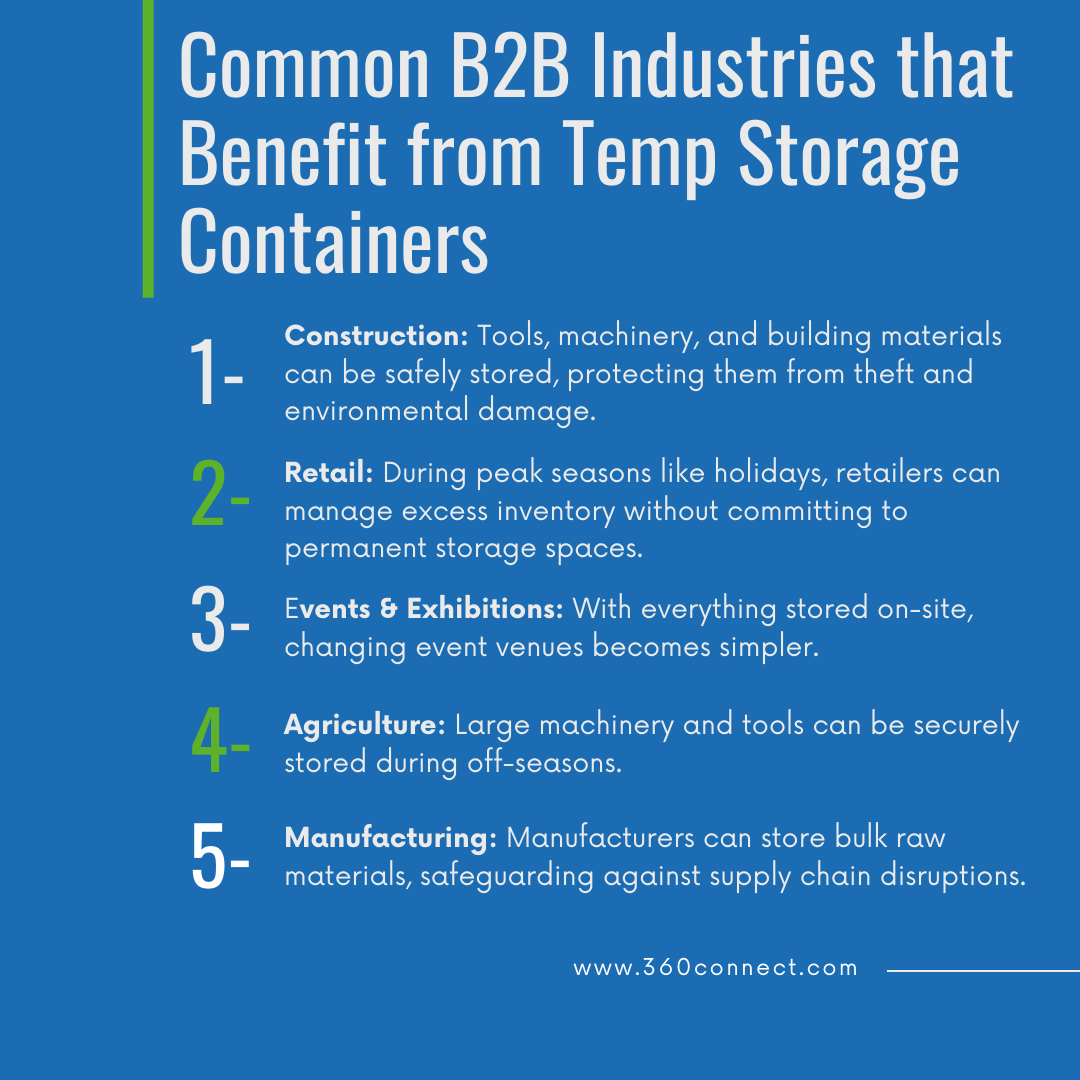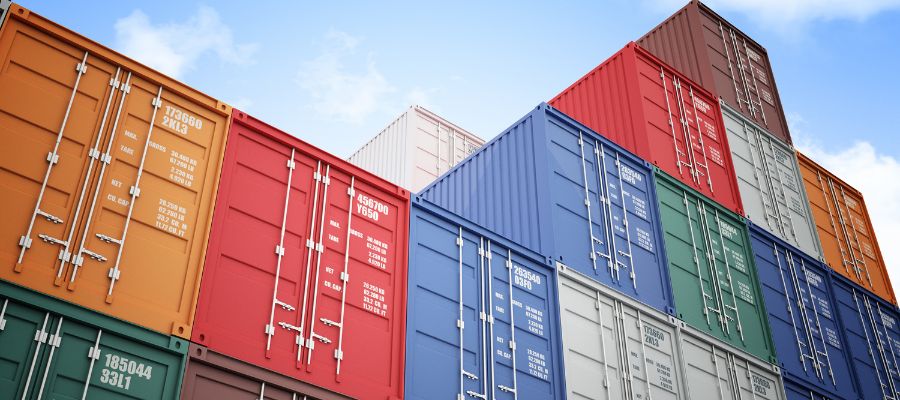The term “temp storage container” refers to versatile, portable, or modular storage containers that can be used for short-term and long-term storage. The main appeal of these products is their portability, durability, and adaptability.
Manufacturers create temporary storage containers as standalone units to house goods securely for a specific period. Businesses can move these containers because they are designed for mobility
Types of Temp Storage Containers
While there are some custom solutions, there are some standard types of temp storage containers that businesses can use.
Standard Containers:
These are the most frequent and available in a variety of sizes ranging from 10 to 40 feet in length. They are useful for storing general items like equipment, tools, or inventories.
Climate-Controlled Containers:
Containers equipped with insulation and temperature control devices make them ideal for commodities, like perishable goods or sensitive electronics, that require special environmental conditions.
There are more types of containers, such as open-top, but these don’t usually work for temporary storage situations.
Benefits of Using Temp Storage Containers in B2B
The B2B sector often grapples with dynamic storage needs, making flexibility and efficiency crucial. Temp storage containers offer many advantages such as:
Space Efficiency:
Businesses may choose containers of varied sizes to meet their specific storage requirements, guaranteeing the best space use. Many containers are stackable, which helps to maximize vertical space, especially in small spaces.
Cost-Effective:
Building long-term storage facilities can be costly and time-consuming. Temporary storage containers reduce this requirement. Rental plans are frequently customized, enabling firms to pay only for the time they need.
As a company needs change, new containers may be easily obtained, or current ones returned. Whether it’s relocating to a different site or setting up a temporary workspace, these containers can be moved for their benefit.
Security:
These containers, which are mostly made of steel, are difficult to penetrate. They are also equipped with durable locks with even electronic security setups.

Key Considerations When Choosing a Temp Storage Container for B2B
It is crucial to select the right temp storage container in order to ensure operational efficiency and protect assets. Businesses should consider the following factors:
Size & Capacity:
Containers come in various sizes, typically ranging from 10 to 40 feet. It’s essential to assess storage needs accurately to select the right size. Make sure that the internal dimensions and layout make it easy for items to be accessed and organized.
Material & Durability:
Containers should be able to survive a wide range of weather conditions, from blistering heat to torrential rain. They should be made from steel or other durable materials and be in good condition with little rust or decay.
Security Features:
Security elements from padlocks to electronic lock systems should correspond to the value and sensitivity of the stored contents. Some containers include pre-installed mounts for surveillance cameras or alarm systems.
Customization:
Depending on storage needs, businesses might require shelving, partitions, or hooks inside the container. Some companies supply containers with extra features such as climate control, ventilation systems, or reinforced floors.
Rental vs. Purchase: Your budget should be at the forefront of your decision. If you only need storage for a limited period of time, renting may be a better option. Most of the time, purchasing doesn’t make sense for temp storage containers.
Rent to Own Storage Containers: How Does it Work?
Learn MoreFAQs About Temp Storage Containers
Most suppliers deliver and place containers using specialized vehicles. They can often be put up on practically any flat surface and do not require a base.
While minor internal modifications might be allowed, it’s essential to check with the provider before making any significant changes. Most storage containers have specific sizes and features. Changing these features may damage the supplier’s ability to rent out the storage container.
Standard containers are designed to be weather-resistant. However, if insulation or temperature regulation is required, it’s best to opt for climate-controlled containers. Make sure to check with the provider if you need something rainproof.
Inspect the container on a regular basis for signs of wear or damage. Make sure it’s on a level surface and that the doors are correctly aligned. Check for rust on a regular basis and, if required, apply rust-proof paint.
Need a Temp Storage Container for Your Business?
Don’t worry, 360Connect can help with your temp storage container needs quickly and efficiently. Just fill out our 1–2-minute form and we’ll contact you to verify your information and needs. From there you can sit back and relax as up to 5 suppliers will reach out to you with quotes! It’s that simple and easy, it’s also totally free!

